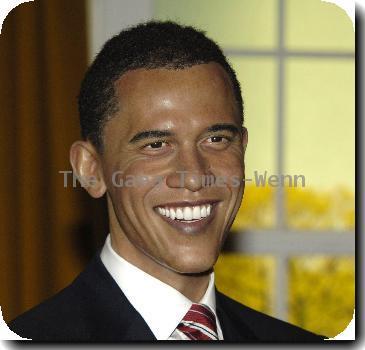Senate Republicans again block financial overhaul bill, float partial alternative proposal
By Jim Kuhnhenn, APTuesday, April 27, 2010
GOP blocks financial bill again, float alternative
WASHINGTON — Senate Republicans, attacked for twice blocking legislation to rein in Wall Street, floated a partial alternative proposal Tuesday and said it could lead to election-year compromise on an issue that commands strong public support.
The 20-page outline would prohibit the use of taxpayer funds to bail out failing financial giants of the future and impose federal regulation on many but not all trades of complex investments known as derivatives. It also calls for consumer protections that appear weaker than Democrats and the White House seek, and it would create new regulations on mortgage giants Fannie Mae and Freddie Mac.
The outline surfaced shortly before Senate Republicans united for the second straight day to block action on White House-backed legislation designed to prevent any recurrence of the ills that led to the economic calamity of 2008. The 57-41 vote left the measure three shy of the 60 needed to advance.
Senate Majority Leader Harry Reid, D-Nev., said he would hold additional votes later in the week, and, he, President Barack Obama and other Democrats have spent days accusing Republicans of doing the bidding of the big financial firms on Wall Street.
“The American people deserve an honest debate on this bill,” the president said in Ottumwa, Iowa.
Reid said, “More than two years after the financial collapse that sparked a worldwide recession, Senate Republicans are claiming we’re moving too fast. “Two-thirds of Americans support us cracking down on big bankers’ reckless risk-taking. And a majority supports us asking banks to pay for their own funerals — that’s the fund financed by the big financial firms to cover the cost of their liquidation.”
The events unfolded in the Capitol as Republicans and Democrats alike spent hours at a committee hearing criticizing current and former officials at Goldman Sachs for seeking profits from the collapse of the housing market two years ago.
But the Senate Republican leader, Mitch McConnell of Kentucky, said Democrats were going too far, coming up with a bill that “reaches into every nook and cranny of American business.” Moments before the vote, his second-in-command, Sen. Jon Kyl of Arizona, predicted that unlike the recent health care battle, this time bipartisan legislation eventually would pass.
The current stand-off follows months of fitful bipartisan negotiations that have failed to yield agreement.
The Republican summary, obtained by The Associated Press, differs from the Democratic measure on several key points.
While banning the use of taxpayer funds in liquidating large financial firms, it calls for the cost to be borne by creditors and shareholders. Democrats favor a fee on banks to cover those expenses.
Republicans suggested a council comprising bank regulators and independent appointees to ensure that large banks and other financial institutions do not take advantage of consumers, as opposed to a Democratic proposal for an independent agency with broader powers.
Derivatives, which are complex investments that contributed to the 2008 economic collapse, would be brought under federal supervision for the first time, but not to the extent Democrats seek.
Republicans also called for restrictions on government assistance to Fannie Mae and Freddie Mac and want the president to submit a reorganization plan. Both are essentially owned by the government, which took control when they lurched toward failure during the collapse of the housing market.
Tags: Arizona, Barack Obama, Goldman sachs, Government Regulations, Industry Regulation, North America, Political Organizations, Political Parties, United States, Washington
|
April 28, 2010: 4:09 am
I believe there must some level of accountability by the large banks to make sure they don’t make risky decisions that brings down the country. However, it must be done in such a way that the free market will dictate what happens and government gets out of the way. Most of the problems wouldn’t occur if holy alliances between these banks and government would not exist in the first place. It’s time to put the free market back in charge. |



The Conservative One